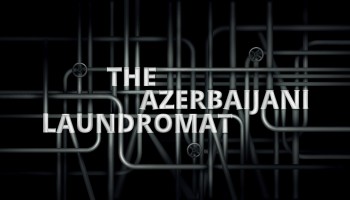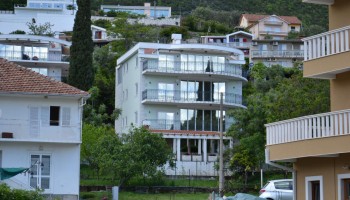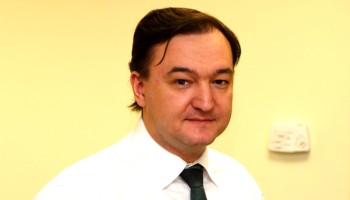Denmark enjoys a reputation for low corruption and transparency that is the envy of the world. But the country’s largest bank was a key enabler in the Azerbaijani Laundromat, a general-purpose money laundering scheme and slush fund used by the ruling elite in Baku.
Danske Bank hosted accounts that let billions of dollars from Azerbaijan and offshores flow freely through its Estonian branch between 2012 and 2014, with much of the money going to other offshore companies, high-ranking officials, and European politicians who praised the regime, a chronic human rights abuser.
Experts say Danske Bank violated national and international anti-money laundering (AML) regulations by closing its eyes to the €2.5 billion (US$ 2.9 billion) that passed through four accounts.
“Danske Bank [broke] almost all AML rules possible in this case,” Danish money-laundering expert Jakob Dedenroth Bernhoft told the Danish newspaper Berlingske, an OCCRP partner.
L. Burke Files, president of the American Anti-Corruption Institute and an experienced international financial investigator at Financial Examinations and Asset Recovery Inc., has also examined the banking records.
He says it could not have been possible for Danske Bank to miss the very large transactions and patterns of wire transfers -- especially wires moving back and forth through the same entities several times a day.
Asked by Berlingske to estimate how serious the case is, he said, “On a scale of one to ten, I’d give it a ten.”
The identities of those who received the money makes the case even more serious, he said.
The recipients include several European politicians: a Slovenian party leader, a German election observer and former parliamentarian, an Italian parliamentarian at the Council of Europe, and the husband of the general director of UNESCO, the United Nations’ cultural organization.
All of them received hundreds of thousands of dollars while praising a regime that has been widely condemned for corruption and human rights abuses. (See: The Influence Machine)
The Azerbaijani Laundromat investigation is based on banking records obtained by Berlingske, which shared them with OCCRP. Journalists from both organizations collaborated with other reporters and media outlets to track where the money went.
Denmark holds the world’s top ranking in Transparency International’s latest Corruption Perceptions Index from 2016 and is generally renowned for its high ethical and human rights standards. Yet Danish banks have lately been heavily criticized by the Danish Financial Supervisory Authority for not observing AML regulations.
In March of this year, Danske Bank Estonia was revealed as a cornerstone in the so-called Russian Laundromat, a project by OCCRP and other outlets that showed at least $20 billion was siphoned out of Russia via corrupt courts and banks in Moldova and Latvia. Once in Latvia, the laundered money could be moved anywhere in the world without difficulty.
More than one billion dollars were transferred to the Danish bank in the years 2011 through 2014 by way of over 1,500 money transfers.
In response to the Russian Laundromat, Thomas Borgen, the CEO of Danske Bank, apologized and stated that the bank had only discovered the situation in 2014.
However, according to an internal email obtained by Berlingske, the bank was aware of problems with its foreign customers in the Estonian branch as early as spring 2013. The e-mail was sent by a manager in the bank’s department for money laundering surveillance to the management of the Estonian branch, as well as to an executive at the group headquarters.
The e-mail discloses that both the Estonian and the Danish financial supervisory authorities were concerned about “Russian customers” at the Estonian branch. Furthermore, the e-mail states that the Estonian Financial Supervisory Authority allegedly approached Danske Bank about the topic and was disturbed that it didn’t take the problem “very seriously.”
Danske Bank had a similar response to the findings in the Azerbaijani Laundromat.
“This is unfortunately yet another example showing that we failed to prevent our being exploited for money laundering and other illegal activities at our Estonian branch during the period,” said Flemming Pristed, Chief Legal Officer at Danske Bank, to Berlingske.
He added that the bank has since terminated relationships with suspect customers and significantly tightened procedures and controls to prevent money laundering.
“Today, we have improved on many levels and though we cannot guarantee that we will never be misused again, we can certainly say that it has never been more difficult than it is today. And we do everything to prevent it from happening again,” said Pristed.
Statistics from the Central Bank of Estonia show that the amount of money pouring into the country from Azerbaijan increased significantly in the years the Azerbaijani Laundromat was in operation.
A total of €37 million from Azerbaijan reached Estonian banks in 2008, rising to €213 million in 2011 and €1.71 billion in 2013.
Other troubling stories have surfaced from Danske Bank Estonia.
Court documents from federal prosecutors in New York’s Southern District in October 2013 show that millions of Danish kroner from the so-called Magnitsky case flowed through the branch in 2008.
The late Sergei Magnitsky, a Russian attorney, has become a symbol of the lawless conditions in President Vladimir Putin’s Russia. Magnitsky uncovered extensive tax fraud in Russia but was instead arrested himself and charged with embezzlement. He died in prison.
In September of 2013, Magnitsky’s employer and CEO of Hermitage Capital, Bill Browder, warned Danish authorities about Magnitsky money flowing through Danske Bank and, to some extent, Nordea, another Danish bank, and urged them to investigate.
The request was denied several times by the Financial Intelligence Unit of the Danish police on because the statute of limitations had expired.
This story is part of the Global Anti-Corruption Consortium, a collaboration started by OCCRP and Transparency International. For more information, click here.






